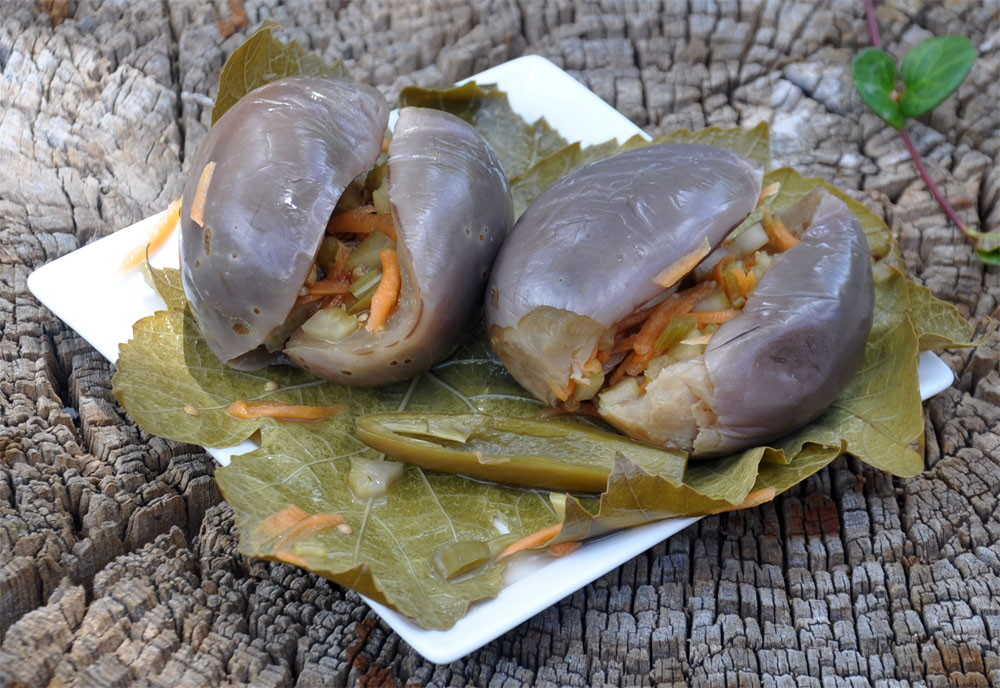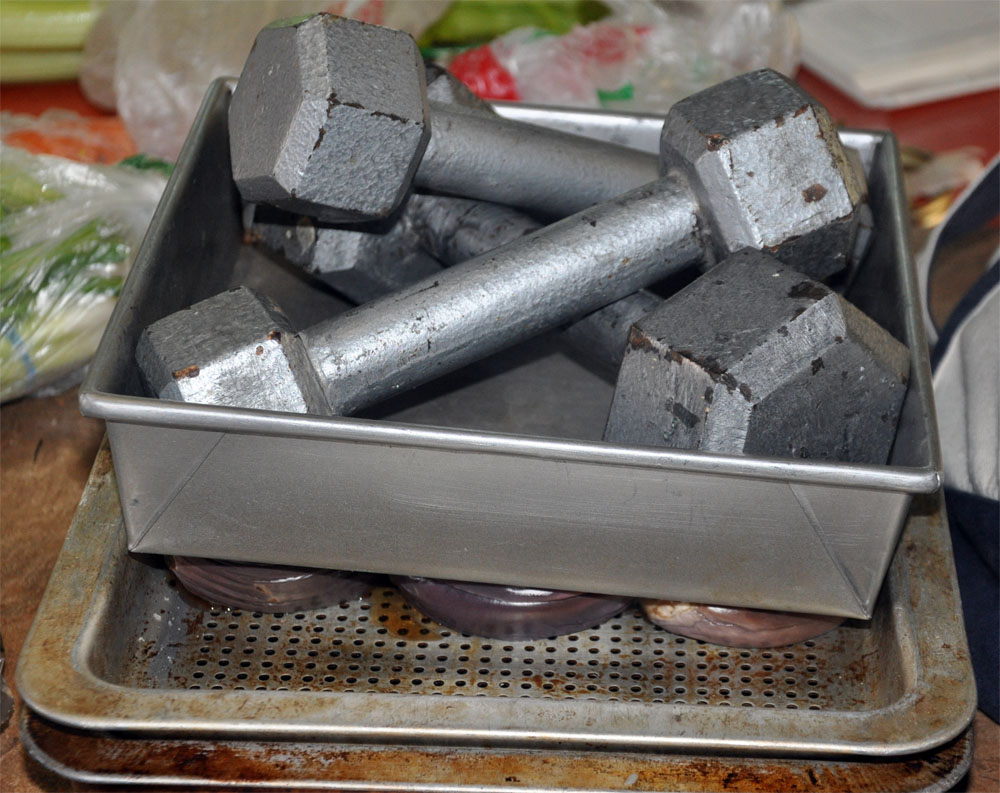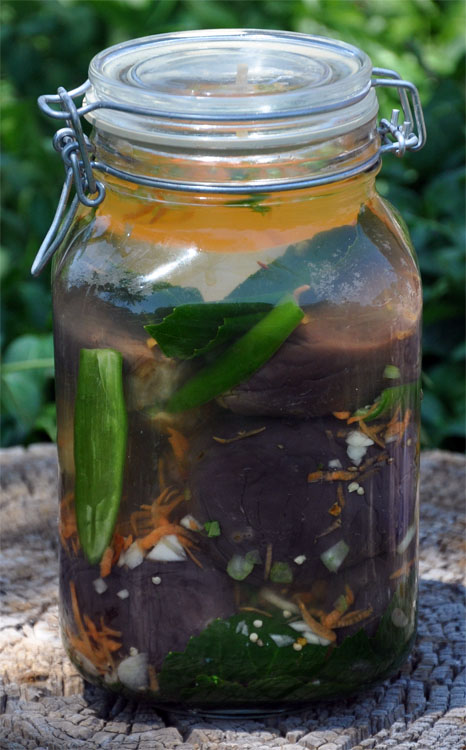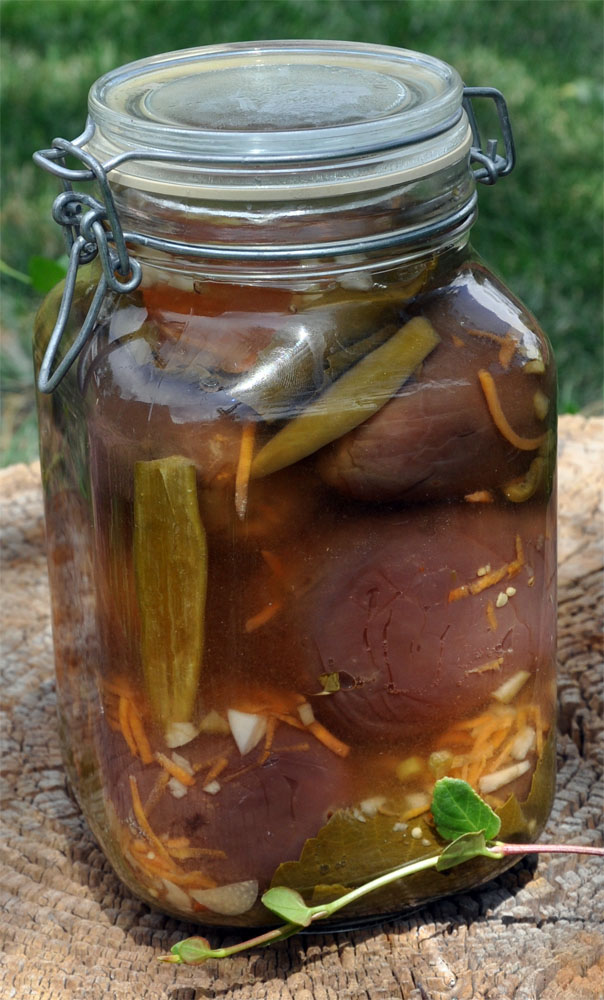
Pickled Stuffed Eggplant
Pickles are a common part of Middle Eastern mezze tables. A favored type are small picked eggplants, often stuffed with various other vegetables and allowed to ferment until they take on something akin to the flavor of a kosher dill. We found two versions of this recipe in our cookbook collection, one from Oded Schwartz’s 1996 Preserving (ISBN 978-0789410535) and the other from M. Humbatov’s 2008 Azerbaijan Cookery. We took ideas from both to make the following. If you would like to put up a glut of any miniature eggplants from your garden for later use, do give this a try. The following recipe will make a quart of pickles. About 2 pounds of small eggplants (enough to fill a 1-quart canning jar) Cut a deep slit into each eggplant. Boil for 5-8 minutes until just softened. Remove from water and allow to drain. When cool rub the insides of the slits with canning salt. Press under 10-pounds of weight and let stand overnight.
8 cloves garlic, coarsely chopped Mix together the stuffing ingredients. Open each eggplant and place 1-2 tablespoons stuffing into the slit. Repeat until all eggplants are filled. 5 garlic cloves Line the bottom of a quart jar with 2 grape leaves and fill with the stuffed eggplants, whole garlic cloves, and halved green chilies. Fill the jar with water and then pour off into a measured container. Add in 1 tablespoon salt for every 2 cups of water. Add in wine vinegar and mix until the salt has dissolved. Place remaining 2 grape leaves on top of the eggplants and fill with the salt/vinegar brine. Weight down the solid ingredients to keep the eggplants from losing their stuffing. Tie a terrycloth around the top of the jar, and cover with a board to keep the brine from evaporating. You'll not want to seal the top with a lid as you need to be able to let gases escape - but you also need to keep out small flies and other insects. Place the jar in a non-reactive pan to catch any possible overflow and let rest for 1-3 weeks in a warm but dark, well ventilated place. When fermentation ceases and the pickling brine clears you may serve or put up for long-term storage by sealing in canning jars using a hot water bath Before & After Fermentation
Archive |



